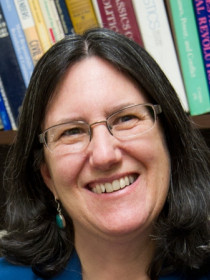
Amy Fried
Connect with Amy
About Amy
Fried teaches and writes about citizens’ political involvements and values, and is currently examining how conservatives promoted distrust in government in the Tea Party age. Several works examine how polling developed and analyze their uses in U.S. politics and society. Fried is a member of the advisory committee for the Maine Community Foundation’s Policy Scholars Program, and works with students researching state-level public policy. As Rising Tide Policy Advocate, a position supported by a National Science Foundation grant, Fried focuses on changing and implementing University of Maine policies on career-life balance and fair and appropriate evaluation.
Contributions
The Huge Benefits of Health Reform for American Women
So Far, Divergent Paths for Health Reform in New England
As People Learn about Affordable Care, Support Increases
The High Stakes for Maine in Fights about the Ryan Budget
Distrust in Government as a Political Weapon
How Progressives Saved Election Day Voter Registration in Maine
No Jargon Podcast
In the News
Publications
Examines the role of local election officials (LEO) as implementers of state election reforms. Derives that data comes from a survey of municipal clerks in Maine conducted after the 2018 general election, as well as interviews with many local officials, garnering their assessments of ranked choice voting (RCV).
Argues that American politics has become more polarized, yet through the first two years of the Obama presidency, Maine’s U.S. Senators took a different path. Discusses how the traditions of this small state provide a model for more substantive and civil politics.